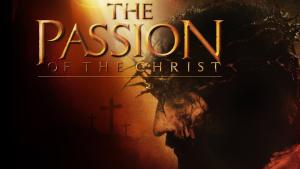
Yesterday’s Good Friday and tomorrow’s Easter can elicit some deplorable history about Christian persecution of Jews because of the death of Jesus of Nazareth.
Passion plays during medieval times were popular in Europe. They often depicted Jesus’s arrest on Thursday evening, his interrogation and condemnation by the Jewish Sanhedrin throughout the night, Roman Governor Pontius Pilate’s questioning of Jesus on Friday morning, and the ten stations from there to the crucifixion scene at Golgotha, with Jesus carrying the crossbeam of his cross. Unfortunately, one result of these plays was Christians calling Jews “Christ killers” and severely mistreating them.
But that is the opposite of what they should do. Christians should love Jewish people because God chose them to be his main witness to the world of his existence, of his love for all humanity, and of his plan for his creation. I agree that it often doesn’t look that way when we think of all the evil in the world. Nevertheless, I believe there is much reliable evidence to show that God exists and his beautiful plan for creation will come to pass in time. According to the Bible, it will involve Jews as head of the nations when God’s kingdom in all of its consummated glory finally arrives on earth.
The Catholic Church was guilty for much of this persecution of Jews. Granted, it was not easy for Catholics, and other Christians as well, to tolerate Jews for not just denying Jesus was their promised Messiah, but alleging that he was an “imposter” who “practiced sorcery and enticed Israel to apostasy” (Sanhedrin 43).
Due largely to The Holocaust of WWII, the Roman Catholic Church tried to rectify its history of mistreatment of Jewish people with its creation of Vatican II in 1962-1965. This was a council that produced a series of documents, one of which is called Nostra Aetate, which is Latin meaning “In Our Time.” It is a “Declaration on the Relations of the Church with Non-Christian Religions.” So much of it is a good effort to establish cordial relations with all peoples of faith, but more particularly with Jewish people and to enhance its dialogue with Judaism.
But I believe Nostra Aetate goes too far by completely exonerating Jewish people for the death of Jesus. Its article 4 states, “The Jewish authorities and those who followed their lead pressed for the death of Christ; still, what happened in His passion cannot be charged against all the Jews, without distinction, then alive, nor against the Jews of today.” This does not correspond to the New Testament.
Indeed, it has become fashionable to lay blame for Jesus’ death only on the authorities who were involved. That would be Roman Governor Pontius Pilate, Jewish High Priest Caiaphas, and maybe the chief priests and other Sanhedrin members who condemned Jesus, but certainly not the common citizens of Israel who were present at those proceedings, especially before Pilate. But this scenario does not fit the New Testament.
The New Testament’s depiction of “the elders of the people,” which appears therein four times (Mt 26.47; 27.1; 22.66; Acts 4.8), means the heads of the families. In allotting guilt for Jesus’s death, these elders have not had their proper scrutiny as Sanhedrin members. These men were representatives of the common people. They also were involved with the aforementioned leaders in plotting and calling for Jesus’s death.
Jews have objected strenuously against the authenticity of Matthew’s account in saying Pilate invoked a tradition before the people of washing his hands and declaring, “‘I am innocent of this man’s blood, see to it yourselves.’ Then the people as whole answered, ‘His blood be on us and on our children'” (Matthew 27.24-25 NRSV). But Matthew had just recorded earlier, “The chief priests and the elders persuaded the crowds to ask for Barabbas and to have Jesus killed” (v. 20). So, that included the elders of the people. And Matthew says of the entire crowd standing before Pilate, “All of them said, ‘Let him be crucified.’ Then he [Pilate] asked, ‘Why, what evil has he done?’ But they shouted all the more, ‘Let him be crucified!'” (vv. 22-23). So, Matthew and other NT gospel writers claim the whole crowd was shouting, “Crucify him” (Mark 15.13; Luke 23.21).
Furthermore, days later, when the apostle Peter gave his first public sermon, which was to many thousands of Jewish citizens of Israel on the first Day of Pentecost following Jesus’s heavenly ascension, Peter proclaimed to them, “You that are Israelites, listen to what I have to say, Jesus of Nazareth, a man attested to you by God with deeds of power, wonders, and signs that God did through him among you, as you yourselves know—this man handed over to you according to the definite plan and foreknowledge of God, you crucified and killed by the hands of those outside the law,” referring to the Gentile Romans, namely Governor Pontius Pilate (Acts 2.22). Peter concluded, “Therefore let the entire house of Israel know with certainty that God has made him both Lord and Messiah, this Jesus whom you crucified” (v. 36).
So, I think the message with which John the Baptist and Jesus came preaching to Israel still applies somewhat to Jewish people today: “Repent, for the kingdom of heaven is near” (Matthew 3.2; 4.17). I say “somewhat” since it seems God withdrew his kingdom promise to Jews when they lost their nation and suffered Diaspora for so long. But God will renew that promise in the latter days, when Jews turn to him en masse and begin to acknowledge the guilt of their ancestors as they participated in the death of Jesus.
So, I think a blog post I created about this subject years ago is still relevant during these Easter holy days. Here it is: “Who Was Most Guilty for Killing Jesus?“













